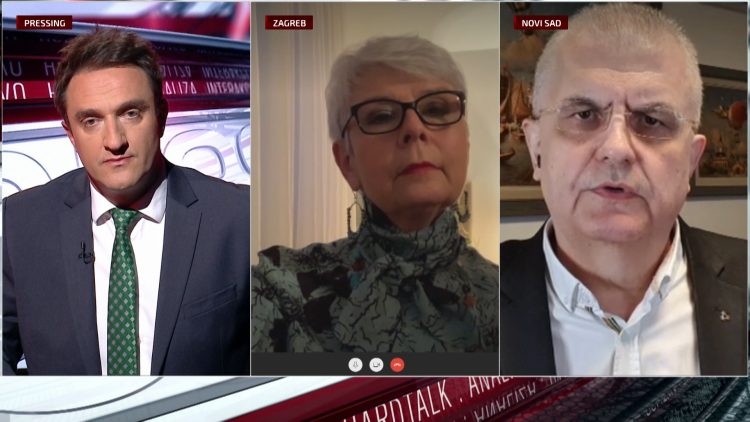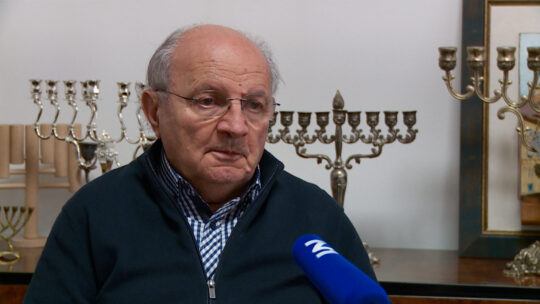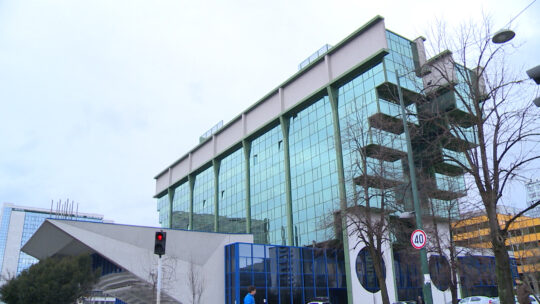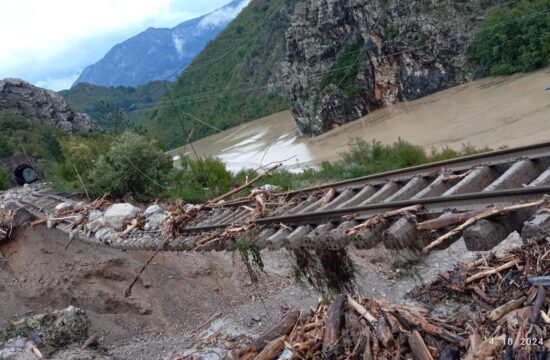
Former Croatian Prime Minister, Jadranka Kosor, and the leader of the centre-left League of Social Democrats of Vojvodina in Serbia, Nenad Canak, told N1 on Wednesday that the so-called non-paper, which caused an uproar in the Bosnia because it proposes a redrawing of borders in the Balkans, should not exist and must be strongly rejected by the EU.
The document, published by the Slovenian news portal necenzurirano.si, proposes Kosovo joining Albania and Serbia annexing parts of Bosnia’s Serb-dominated Republika Srpska (RS) entity, while the mostly Croat-populated parts of southern Bosnia and Herzegovina would become part of Croatia.
According to the Slovenian news portal, the country’s PM, Janez Jansa, sent the document to Brussels. Jansa denied those claims.
While the Bosniak and Bosnian Croat members of the tripartite Presidency in BiH strongly condemned the document, their Serb colleague and current Chairman of the institution, said a “peaceful separation” of Bosnia’s two semi-autonomous entities is the only option in the long run.
The true purpose of the document?
Ex Croatian PM Kosor told N1 that she expected a much stronger reaction from EU officials after the non-paper emerged.
She said that she believes the purpose of the document was to test the public opinion and see how acceptable the ideas it contains would be.
She said that Jansa was only the one to “carry that trial balloon” and that it is scandalous that this paper could have been written by an EU member state while “one of the EU foundations is the rule of law.”
Nenad Canak pointed out that the author of the document remains unknown and that similar documents, also with unclear authorship, have in the past led to war.
“Unfortunately, I have seen these works by unknown authors many times in my life, for example, the Memorandum of the Serbian Academy of Sciences and Arts (SANU), for which it was also not known where it came from, who wrote it,” he said, adding that the ideas contained in that document were “implemented with weapons.”
“Such a map which was drawn there must not exist. Whoever thought it up is a warmonger and must be called out for it,” he said.
Kosor stressed that the EU should have reacted more strongly, arguing that “where there is smoke, there is a fire.”
“I believe the President of the European Council and the President of the European Commission will speak out and very clearly state firm views on ideas from such a paper,” she said.
“Because of the future of the European Union, I expected a fiercer, stronger reaction that would once and for all remove the non-paper from the agenda,” she said, adding that such documents “end in bloody confrontations.”
“I don't know who would go to war with whom, but I hope no one will fight with anyone,” she said.
It failed before
The non-paper was in a certain way welcomed by Bosnian Serb Presidency member Milorad Dodik who has been advocating for the dissolution of Bosnia and Herzegovina for more than a decade.
After the paper became public, he stated that he supports and will work on a “peaceful dissolution” of the country.
Canak excluded such a possibility.
“That was already tried thirty years ago and whoever talks about any split, speaks of population displacements, genocides and fabrications that will produce mutual agreements,” Canak said.
“Extreme nationalists understand each other very well, they only have a problem regarding the percentage of the territory, and multiethnic environments always suffer for it,” he said, stating the exampled of BiH, Vojvodina, Montenegro or North Macedonia.
Canak said he does not believe that Serbia’s President Aleksandar Vucic supports the ideas from the non-paper because “any attempt to break up Bosnia would end in catastrophe for Serbia.”
Changes of borders on ethnic principles could also raise the issue of the southern part of Serbia, he said, referring to the province of Sandjak which is inhabited by Bosniaks.
“Dodik is winning elections through nationalism, and when someone says something nationalist, he attempts to say something even more nationalist. He is interested in money, power and was to survive,” Canak said.
Both Kosor and Canak said that Croatia and Serbia would not support the dissolution of BiH, while Canak said that authorities in Bosnia’s RS entity do not truly want to join Serbia.
“I think that Croatia would never agree to that, regardless of who iss in power. I think the issue is very clear and that too much attention is being paid to the non-paper,” Kosor said.
“I do not believe that Republika Srpska would want to join Serbia. It’s a story for the naive. If RS became part of Serbia, it would lose its significance,” Canak said.








Kakvo je tvoje mišljenje o ovome?
Budi prvi koji će ostaviti komentar!